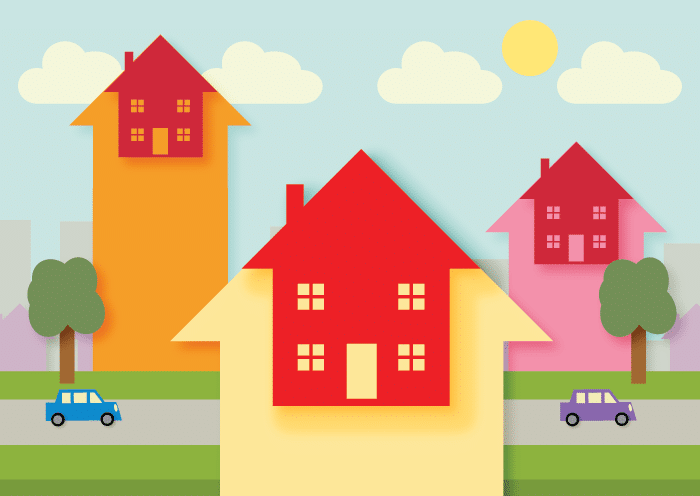Property taxes fund schools, libraries, police and fire departments, along with public works such as roads, parks, and playgrounds. They’re essential to our communities – but that doesn’t make them any easier to pay. When you buy a home, you learn what the property taxes are in your area. However, when those rates start rising, it’s often difficult to understand why. When you’re holding a higher tax bill in your hand, it’s most likely one of the following reasons that are to blame for your property tax bill rise.
1- Property Revaluation
Predictably, municipalities do reevaluate the properties in their area at certain intervals. During this time, accessors, who are government officials, will go around and do their best to determine the true assessed value of the properties in their jurisdiction. This is to help ensure that the tax burden is correctly spread amongst the area’s homeowners. The assessor is only responsible for assessments – not taxes.
According to the NY State Department of Taxation and Finance, months after assessments are finalized by the assessor, taxing units (school districts, cities, towns, and counties) determine the amount of taxes that a taxing unit needs to collect from property owners, known as the tax levy. The property tax levy is determined separately from the assessments and is then distributed over all taxable assessments.
A home assessment doesn’t necessarily mean that your taxes will go up. For example, there may be a lot of new constructions in your community, which can help to offset any tax bill increase.
2- Home Improvement and Additions
Renovations are a common part of homeownership and revitalizing your home can add to its value. Unfortunately, however, that bathroom or more substantial kitchen renovation you just finished will most likely cause your property taxes to rise as well. Why? There’s a simple reason. Improving your home means it’s worth more. As your property taxes are based on the value of your home, when your home value increases, your property taxes will increase alongside.
Adding a second floor to a ranch home or an extension to the back of a colonial house will most likely increase that home’s property taxes. But anything that increases the square footage of the living space that you already have, such as finishing the attic, garage, or basement with sheetrock and adding heat and air conditioning, will likely trigger an automatic reassessment as well.
Building an additional bathroom is an improvement that will trigger a reassessment of a home. While replacing cabinets in your kitchen may not trigger an assessment, moving walls and adding cabinets and countertops may.
Even improvements to your property outside of your home can trigger an assessment. While above ground pools don’t tend to increase property values, inground pools do. Adding fences, sheds, patios, and decks can also increase your home value, causing corresponding property taxes to increase.
Before any home renovation, it might be worth running the numbers. Calculate how much the renovation will cost you, what it will add to your property’s value, and then figure out what the probable rise in your tax bill will be. Before you pull the trigger on your home renovation, decide if you can afford a higher property tax bill, or if the expense of the remodel will leave you with too short a cash flow to pay the higher rates. If you’re unsure, you might want to hold off and save up until you’re sure you have enough for a renovation and your new property taxes.
3 – Higher Home Sales in the Neighborhood
Home values are partially based on the value of other homes in the area – so keep track of what your neighbors are selling their homes for, not what they pay in taxes since what they pay can include exemptions. If the homes in your neighborhood are selling for more than the asking price, it might be a sign that property taxes are soon to rise. Unfortunately, this type of tax increase is out of your hands.
4 – Building New Schools
New schools are important additions to the community – however, they’re also almost always a signal that a property tax hike is on the way. First off, new schools will attract new families as your community becomes a more desirable location. This will drive home prices up, and subsequently, property taxes.
New schools – at least, if they’re public – may also contribute to higher government budgets, as administrators, teachers, and school employees will need to be hired, and grounds will need to be maintained, which almost always indicates that a tax rise is on the way.
5 – Local Government Budget Increases
One of the principal reserves on which cities and counties draw to fund their budgets is the property tax. If budgetary needs increase, the residents’ taxes may need to be increased to help pay for it.
According to the Office of the NY State Comptroller, with some exceptions, the State’s Property Tax Cap limits the amount local governments, and most school districts can increase property taxes to the lower of two percent or the rate of inflation. In order to override the Tax Cap, local government boards must pass a local law or resolution by at least a 60 percent vote.
What should I do if I Think my Long Island Property Taxes are Too High?
So how can homeowners push back and lower their property tax rates? For starters, make sure your property records reflect your property accurately. Mistakes do happen. Some assessments list more bedrooms or bathrooms than you have in your home. If you do find mistakes, make sure to contact the tax assessor and have them corrected.
If you believe your property taxes are too high, you can file a tax grievance. A tax grievance professional can give you a good estimation of whether pursuing a tax grievance is a good idea or not, and that’s because they have a great sense of the tendencies in the local boards when evaluating various kinds of petitions. Hiring a respected tax grievance firm costs you nothing unless your property taxes are reduced.
Founded on the simple principle of helping our clients pay the lowest possible property taxes, Heller & Consultants Tax Grievance have saved Suffolk and Nassau residents over $35 MILLION, a figure that continues to increase daily. Last year alone we saved our Nassau clients over $1.5M in property taxes… Suffolk homeowners over $1.4M.

